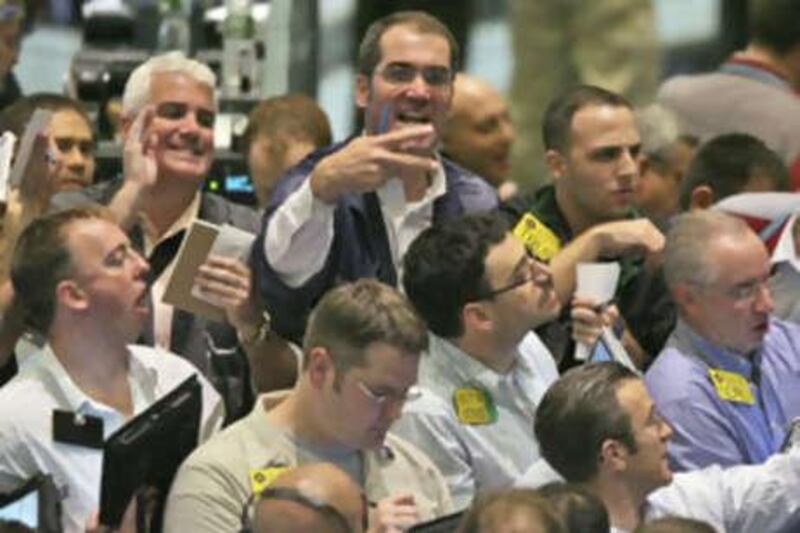The price of a barrel of crude oil fell below US$70 tonight, less than half its July peak, and Opec brought forward its emergency meeting to Oct 24 after a US government report showed inventories had increased by more than twice as much as expected. The three-day losing streak in oil prices also reflects mounting fears that the global economy is sliding into recession. "Demand in not just energy, but across all consumer products, is going to be hit," Jonathan Kornafel, a director for Asia at Hudson Capital Energy in Singapore, told Bloomberg News. "That's just going to export recession to Asia and the manufacturing economies. 2009 is not going to be pretty."
Unlike earlier this year, when oil and share prices moved in opposite directions, crude's trajectory this month has tracked global stock and bond markets lower amid the financial crisis and a weakening global economic outlook. "It is very difficult to buy oil if you are having a hard time getting credit lined up," said Francisco Blanch, the head of commodity research at Merrill Lynch. Pushed down by a relentless onslaught of gloomy economic data, crude prices have fallen despite growing expectations that Opec will cut production at the rescheduled extraordinary meeting it had originally set for next month.
Today, the Opec president Chakib Khelil declined to predict by how much the organisation was likely to cut production quotas. He said the "ideal" price for crude was between $70 and $90 a barrel, and predicted the global financial crisis would persist in Europe and the US until 2010. Crude oil for November delivery dipped to $69.15 a barrel today on the New York Mercantile Exchange (Nymex), the first time it had been below $70 since August last year.
Nymex oil prices are roughly 20 per cent lower than a year ago and are about 53 per cent below their July 11 peak of $147.27 a barrel. Prices are now below break-even levels for the national budgets of some Gulf countries, including those of Iran, Iraq, Oman and Bahrain. Economists have estimated the break-even oil price for the world's biggest oil producer, Saudi Arabia, at about $55 a barrel, and for the UAE at roughly $30 a barrel.
Today, the US Federal Reserve said industrial production in the US fell by 2.8 per cent last month in its steepest decline in almost 34 years. For the third quarter, output fell at a six per cent annualised rate, the fastest since 1991. That news followed a US Commerce Department report on Wednesday of a 1.2 per cent drop in US retail sales last month as tighter credit slowed consumer spending. Later in the day, the Fed said the economy of the world's biggest energy-consuming country continued to deteriorate in early autumn. Previously, the Fed chairman Ben Bernanke told the Economic Club of New York that efforts to calm financial markets were unlikely to spark an immediate economic rebound.
Joining other oil analysts in slashing price projections, the US financial firm Sanford C Bernstein today cut its average crude price forecast for next year to $70 from $90 a barrel, and its 2010 forecast to $80 from $95. The firm cited weakening global oil demand growth and increasing spare production capacity in oil-exporting countries such as Saudi Arabia. "In the long run we continue to believe that oil and gas prices will trend up in line with the marginal cost of supply. However, prices should continue to cycle between the cash cost at the bottom ($45 to $50 a barrel) and the price of demand destruction ($110 to $125 a barrel) at the top," Bernstein analysts wrote. Yesterday, Opec cut its forecast for global crude demand next year by 0.5 per cent, or 450,00 barrels per day (bpd), to 87.21 million bpd due to "dramatically worsening" financial market conditions. Last week, the International Energy Agency, the Paris-based energy adviser to 28 industrialised nations, also lowered its global oil demand forecast for next year by 0.5 per cent to 87.2 million bpd. tcarlisle@thenational.ae





